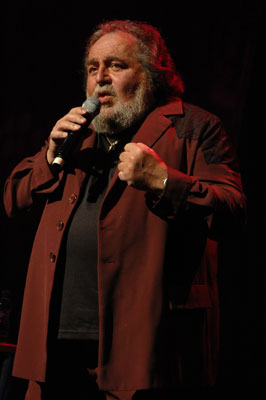
Édith Piaf was a French singer, lyricist and actress. Noted as France's national chanteuse, she was one of the country's most widely known international stars.
This is a list of notable events in music that took place in the year 1918.

"Rapunzel" is a European fairy tale most notably recorded by the Brothers Grimm and published in 1812 as part of Children's and Household Tales. The Brothers Grimm's story was developed from the French literary fairy tale of Persinette by Charlotte-Rose de Caumont de La Force (1698).

B-Sides & Rarities is a 3CD compilation by Nick Cave and the Bad Seeds, released in March 2005. It features over 20 years of the band's B-sides and previously unreleased tracks. It is also the first recording to include all members of the Bad Seeds, past and present up to the time of its release: current members Mick Harvey, Blixa Bargeld, Thomas Wydler, Martyn P. Casey, Conway Savage, Jim Sclavunos, and Warren Ellis, and former members Barry Adamson, Hugo Race, Kid Congo Powers, Roland Wolf, and James Johnston. A second volume, B-Sides & Rarities Part II, was released in October 2021.
Roméo et Juliette: de la Haine à l'Amour is a French musical based on William Shakespeare's play Romeo and Juliet, with music and lyrics by Gérard Presgurvic. It premiered in Paris on January 19, 2001. The production was directed and choreographed by Redha, with costumes by Dominique Borg and settings by Petrika Ionesco. The producers were Gérard Louvin, GLEM, and Universal Music. ! Since then, the musical has been performed in Verona, Rome, Canada, Antwerp, London, Amsterdam, Budapest, Szeged, Moscow, Vienna, Bucharest, Seoul, Pusan, Taipei, Monterrey, Japan, Hong Kong, Shanghai and Portugal and has been translated into several languages, including Dutch, Italian, Hungarian, Russian, English, German, Spanish, Romanian, Japanese, Korean, Portuguese, and Slovak.
Jean Gwenaël Dutourd was a French novelist.

Dr. Jekyll y el Hombre Lobo, also known as Dr. Jekyll and the Werewolf, is a 1971 Spanish horror film, the sixth in a series of 12 films about the werewolf Count Waldemar Daninsky, played by Paul Naschy. Naschy actually plays a triple role in the film, portraying Waldemar Daninsky, the Wolf Man and Mr. Hyde. This was Naschy's 2nd film working with director Leon Klimovsky, following their hugely successful 1970 collaboration La Noche de Walpurgis. This film also featured Euro-Horror star Jack Taylor, Mirta Miller and the beautiful Shirley Corrigan of England. The film failed however to reach the box office success of Walpurgis.

George Authur Woodbridge was an English actor who appeared in films, television, and theatre ranging from the 1930s to the 1970s. George became well known for his ruddy-cheeked complexion and West Country accent, this meant he often played publicans, policemen or yokels, most prominently in horror and comedy films alongside Christopher Lee and Peter Cushing.
James Alexander Brennan was an American songwriter. Sometimes identified as Jas. H. Brennan, he collaborated with lyricist Jack Caddigan (1879–1952) on several songs published by Leo Feist and Oliver E. Story. One of his more popular songs was "Little Red School House" which he wrote with Al Wilson in 1922. It was originally sung by the American Quartet and also by The Happiness Boys, Billy Jones and Ernest Hare. Brenda Lee sang it twice on TV, once at the age of 10 with Red Foley and later at 16 with Perry Como.
Jack Caddigan was a Boston lyricist who is credited with the words to over fifty songs written between 1911 and 1922.
The French Syndicate of Cinema Critics has, each year since 1946, awarded a prize, the Prix Méliès, to the best French film of the preceding year. More awards have been added over time: the Prix Léon Moussinac for the best foreign film, added in 1967; the Prix Novaïs-Texeira for the best short film, added in 1999; prizes for the best first French and best first foreign films, added in 2001 and 2014, respectively; etc.

Paul Michel Audiard was a French screenwriter and film director, known for his witty, irreverent and slang-laden dialogues which made him a prominent figure on the French cultural scene of the 1960s and 1970s. He was the father of French film director Jacques Audiard.

Richard Anthony, born Ricardo Anthony Btesh, was a French pop singer, born in Egypt, who had his greatest success in the 1960s and 1970s.

Le Temps des cerises is a song written in France in 1866, with words by Jean-Baptiste Clément and music by Antoine Renard, extremely famous in French-speaking countries. The song was later strongly associated with the Paris Commune, during which verses were added to the song, thus becoming a revolutionary song. The "Time of Cherries" is a metaphor regarding what life will be like when a revolution will have changed social and economic conditions. It is believed to be dedicated by the writer to a nurse who fought in the Semaine Sanglante when French government troops overthrew the commune.

Madeleine Riffaud is a French poet, journalist, war correspondent and previously a member of the French Resistance.

Correspondances is a song-cycle for soprano and orchestra written by the French composer Henri Dutilleux in 2002–2003.
Lucky Blondo is a French singer who was popular in the 1960s.

Les Feuilles d'Automne is a collection of poems written by Victor Hugo, and published in 1831. It contains a multitude of poems, six of which are especially known as Soleils Couchants.
National Museum Recuperation is the French state organization that manages the looted artworks recovered from Nazi Germany and returned to France after the Second World War. Of 61,000 looted artworks returned to France, 2143 remain in custody of the MNR.
In Jacqueline Winspear's novel "Maisie Dobbs", the title character sings this song to a group of badly disfigured veterans of World War I in England. In John Steinbeck's novel "East of Eden", Cal Trask sings a line of this song to himself while walking through Salinas.











